Introverts!
Introverts!
Our time has come.
More Posts from Moirewrites-blog and Others
Chapters: 1/1 Fandom: Sherlock Rating: Explicit Warnings: Creator Chose Not To Use Archive Warnings Relationships: Sherlock Holmes/John Watson, Mary Morstan/John Watson Additional Tags: Angst, Sex, First Time, Post Season 3 Summary:
Dearest Sherlock,
It’s only a matter of time before the police come to get me. It’s much too obvious. I wouldn’t even rate the crime scene a four. It’s always the husband, isn’t it?
Academic Elitism: an institutional issue

Sorry for being so rant-y lately, but the elitism of university has been a problem for me from the exact moment I accepted my scholarship with a signature and a handshake in high school. (The scholarship was later revoked due to state up-fuckery, but that’s another story, and I was already in too deep by the time they told me).
My parent’s house was only an hour north, my younger sister had already claimed my room, but I was excited. I was in the furthest dorm building, because that’s where the scholarship kids went, it was like a poor kid diversity hall, every few doors was someone from a completely different background, but we were all poor except our Swedish RA, and there was an odd pride in that. We all had various scholarships: robotics, dance team, nerds like me, etc. (not the football or hockey athletes though, they had their own dorm next to the library for… reasons, lol).
But being the last hall, it wasn’t actually full, most of us had entire rooms to ourselves, often whole suites; our hall was co-ed, but rooms were only occupied at every-other, staggered down the corridor. Only the front two halls were used, the back two closed off for construction or codes or something. We had to hike up the hill for dining halls, which was fine until snowdays that shut the whole campus down (and I mean west Michigan ones, with 4+ feet of powder and ice underneath). I had an old computer my dad got me for graduation and I didn’t know it was old until my peers started calling it a dinosaur. I had to use the library computers to write and print papers, and most places I went, I ran into the other scholarship kids. We didn’t talk much, just a head bob here and there, awareness at our similarities and an annoyed spite at being thrown together this way. It was lonely for everyone.
I had a purple flip phone I’d gotten only that calendar year (2009) and was still learning to text with (abbreviations? instant messaging? what?). My roommate had come down from Alaska to live near her dad, we’d talked in the summer, but I never saw her. I moved my things in and her stuff was on her side, I texted her about going to turn in paperwork and when I came back, there was a note on my bed and all her things were gone, she couldn’t do it, had never been away from home for even a night. She left a few mismatched socks and a bag of junk pens that I resented for years.
Social media was mostly a way to talk to people across campus and exchange homework and party times/locations. We posted over-edited photos of our food and still jogged with our mp3 players and ipods. But within two years, I had to trade in my computer three times and upgrade to a smartphone to keep up with the expectations of communication. Professors would cancel classes by emails an hour out, and if I was on campus, I simply didn’t get the message, running between classes with 19 credit hours and three jobs. Work would call in or cancel my appointments (tutoring) and I needed to be able to communicate at the rate of my peers, so though it wasn’t something we could easily afford, my parents let me get the smartphone and my dad helped me find computers that could keep up with writing papers and researching without having to go to the lab, which saved so much time.
There was little understanding for my suffering. I didn’t have a car, I had to call my parents and organize a time to get home or take the train which was more expensive than waiting around on an empty campus. They were often things that even the wealthiest students had to deal with, but there were so much more of them for us, more stress, more problems, more solutions, more consequences, and in some ways, more determination.
I spent plenty of breaks holed up in my room, but when the swine flu/H1N1 outbreak happened, guess where they quarantined students?
In our hall.
Not the back one that was closed. In the room attached to my suite.
After half a semester alone, suddenly strangers shared my bathroom. I never saw them, I would just hear the formidable click of the bathroom lock followed by the shower. A week later I got a blue half-sheet note in my mailbox about quarantines. The other kids were as pissed off, as we watched kids escorted in with blue masks and were told to just get cleaning wipes from the front desk –they ran out in a week.
We were the recyclable students, brought in to trade scholarships for university grade averages. Many of my friends were struggling with scholarship qualifications and gpas (which only encouraged my continual obsessive perfectionism and involvement).
We were expendable.
I didn’t understand the elitism then, or I did, but I’d twisted it in my head from years tossed between private and public schools. I was an invader, I wasn’t supposed to be there, but I wanted to be. I understood that I didn’t deserve it, that I had to work harder to stay. I completed Master’s coursework for my Bachelor’s degree, finishing two BA programs (anthropology and English: creative writing) and 2 minor programs in philosophy and world lit, lead several campus groups and volunteered with honor’s societies. I spent hours on campus every day, running home just to go to one job or the other. I slept about four hours a night and I still romanticize it because I loved it. And I was good at it. It was a closed system, easy to infiltrate, easy to watch and observe and follow, to feel protected from the world, but there were always ways that I came up short.
I didn’t have leggings or Northface fleeces or Ugg boots or name brand anything (except a pair of converse I got in 8th grade from my Babcia). I had old high school sweats and soccer shirts, hand-me-down clothes from sisters and cousins that mix-matched a style I thought was unique but I now understand screamed I don’t really belong here. Example: I went to propose an independent study to a professor I really admired and I panicked about what to wear. I still cringe at the memory, gahhhhhh, but I pulled on what I thought was a decent dress because it had no rips or stains or tears and though I’d picked it up from a clearance rack, it was the newest thing and therefore the best. But in retrospect, it was definitely a “party” dress, I grabbed a sweater, hoop earrings that had always been beautiful in my neighborhood, and heels I never wore otherwise, and presented my idea. This old professor was just like “um…did you dress up for me?” Clearly spooked by red flags and I realized my mistake. Saved by quick thinking I clarified “no, I have a presentation later,” and being a familiar face in the social sciences department, I let him assume I was dressed up as something. I just went in my sweats and t-shirts after that, got a haircut that tamed the wavy frizz and learned the importance of muted tones, cardigans, and flats.
I made a lot of interesting friends in the process, people who also stuck out from the American Academic culture: exchange students, older (non-traditional) students, rebels, and other poor kids. But that also meant that we all evolved during our time there, so friendship was quick and fleeting as we adapted or dropped out or remained oblivious, lost in our studies and dreams of changing the world or our lives.
I had no idea how to approach the dining halls because I could only afford the bronze plan that was included with my room+board scholarship. I could enter the hall ten times per week, with four included passes to the after-hours carry-out (this was an upgrade from the free high school lunch I was coming from). I met other kids on this plan and their dorm rooms had fridges and microwaves and shelves of ramen and mac’n’cheese. Mine was sparse, my fridge had jugs of water from the filtered tap in the common room, and though it had a shared kitchenette, it always smelled bad or was being used and the nearest grocery store was Meijers which was a 15-20 minute drive from campus. I used so much energy dividing up my meals and figuring out how to sneak food from the hall for later or just learn to not eat, which is another story involving malnutrition, broken bones, and the American Healthcare System.
We like to summarize the college experience with fond struggles. I went back to my old high school to watch my younger sisters’ marching band competition that first year (it’s MI, and they were good). My old art teacher (not much older than we were but she felt so much older at the time, also her maiden name was Erickson and so was her fiance’s so she didn’t “change” her name and that blows my mind to this day), anyway, she stopped me to ask how school was going, and I was not prepared to be recognized in anyway and stammered out something like “oh, yeah, stressful. Fun, cool, yeah,” like the eloquent well-educated student I was. And she said, “oh, I loved it, don’t you love it? Everything’s so charming, and being poor? Oh man, it’s hard for a while, but it’s so good to go through.”
I was dumbfounded at her reference to poverty as a thing to go through when you’re a student. I again had to remember that I was infiltrating places where people weren’t just marginally more well-off than I was, but far beyond, in a place where they couldn’t comprehend an alternative, couldn’t conceive of surviving poverty, of not having a reliable place to fall if you mess up, parents who couldn’t support you if things went wrong, who couldn’t save you from having to drop out if scholarships were canceled because the money just wasn’t there.
Talking with my parents never worked, and I recently found this video by The Financial Diet about Boomer shame in being poor, where many Millennials were united by it and it was #relatable. But all this is to say that there are so many layers and ways we develop in higher education that are often overlooked by the romantic nostalgia of the elite expectation. What we demand from education vs. what it offers us in return is rarely equal for students coming from poverty, and it starts with that first sacrifice of looking at money and deciding it has to be worth it to do something bigger, and that education is a necessary piece of that goal.
Now I live near Brown University, I’ve been to Harvard when we lived in Boston and recently took a trip to Yale with bold expectations. I am friends with several people who work at these places and I hear the same things: so many students are in a place where their obsessions are considered more important than the larger world, an argument that Shakespeare is a woman is more important to prove than the greater issues of sexism in society as a whole, while others are trained to look at data and the world as a pocketable fact-book, going to conferences and week-long summits and then off to D.C. to make important decisions about places they’ve never been to, for people they’ve never met, about problems they’ve never experienced.
It’s not new. It’s not romantic. It’s not nostalgic. It’s just sick.
I was horrified at New Haven. I have read so many social science reports and papers and experiments and academic bullshit that has come from professors at Yale with a big badge of ivy-league validation. So much of this research was focused on homelessness and culture clash and socio-economics in America, as that was my “dissertation” that got me discounted master’s classes for my BA in Anthropology. Anyway, my point was that I thought this noble, proud university that put out so much research was going to be situated in something of a utopia, where their research is put into practice. Obviously, I was wrong, but I didn’t expect how wrong. (I had also started reading Leigh Bardugo’s Ninth House, so… there’s another thing).
My observations were validated by employees of ivy-league schools, who have watched over the past 2 decades as they grow more and more reclusive, hiding away from the public except through a few, probably well-intentioned, outstretched hands that do little to contribute to the world outside the university itself. These ivory towers are built by poaching: environments, observations, resources, research, and yeah, even students.
I love academia. I will sit in a library for hours just pulling down tomes (and putting them back in their proper locations like a dork) and drawing connections just for fun. But right now, I’m a bit bitter and spiteful and angry.
When something like Coronavirus sneaks up on us, we have a tendency to throw the most expendable people under the bus as quickly as we can, and all I can think about is my shadow of a suite-mate sneezing and coughing with swine flu for two weeks, at how I refused to use my own bathroom and listened to my hall-mates’ advice about showering at the rec center a mile away as we all collectively locked our bathroom doors and were left there by the university to get sick without insurance to help with any foreseeable costs.
It’s not the same now, they’ve rebuilt the entire section of the campus, it’s odd to see it, I wonder where they put the expendable kids. Or maybe they don’t accept them anymore. I’ve worked in college admissions since then, and it is a scary industry of politics and preference and hidden quotas and image-agendas. Not all schools are industry monsters, but when you’re expendable, they sure do feel like it, whether you graduate summa cum laude with two degrees, six awards, and five tasseled ropes around your neck or not.
I wish I had a positive message. I wish I was in a place to help people who feel expendable or like they can’t keep up with communications because of technology or language or network or environment. But I don’t have much right now. For all its posturing and linear progression, academia needs to create profit. All I can do is yell about this existing.
If you are feeling expandable in university, I can tell you you’re not alone. I can let you rant about all the small ways your peers don’t get it, whether its an accent they shit on or ceremonies you don’t have the right clothes for or textbooks you share with a friend to cut costs but then they hoard them. I can relate to you about guilt and that sneaking panic that fills you with anxiety at night as you question yourself and wonder if it’s worth it at all, if it’s necessary, if it’s okay to be expendable to follow something that feels bigger. I can validate your doubt and tell you that you’re not actually expendable, you’re a bridge.
I’m sorry it still works like this. I wish we figured out how to change it by now, I wish I had secret shortcuts to tell you about, that there was more accountability or hope, but I’m not seeing it lately. I hope you do. <3

Devil John 7 - Sex
Fandom: Sherlock
Rating: Explicit
Excerpt:
In the army, his unassuming nature and his ability to get a repeat date with any woman who had dropped her knickers for him once was what spurred the men to name him Three-Continents Watson.
He couldn't help the desire he felt whenever a pretty woman walked by, but it was contained somewhat by his certainty that he could have them begging and calling his name if he wanted them to. Even so, he always felt a little tense when he was alone with a woman.
Men, for the most part, did nothing for him. John found them uninteresting, almost without exception. Until a man had strutted across the lab toward him with his cheekbones and his tailored suit and John had felt it like a punch in the gut. He'd even had the gall to wink at him on his way out, just like she had, reminding him of what it felt like to be powerless.
When Sherlock had taken John's very mild query into his sexual orientation and thrown it in his face, John knew that his momentary thought of perhaps giving the other side a go was never going to happen. He put it out of his mind.
And yet, Sherlock always had a way of throwing him off balance. He definitely was NOT a woman, but sometimes the ever-changing color of his eyes, or the pale freckles on his neck as he stood playing the violin, or the rounded curve of his ass would hit John in a way that made him feel like he was back in that referee's closet.
continued on AO3




Really cool tutorial about drawing (and how not to draw) East Asian eyes from @_ket2 on Twitter that I thought people would find useful! I really appreciate it as an East Asian person myself, and often frustrated by some of the uniform ways we’re represented in illustrations (reposted with permission).
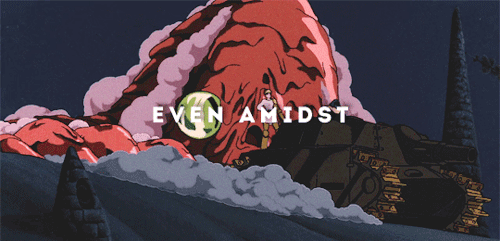
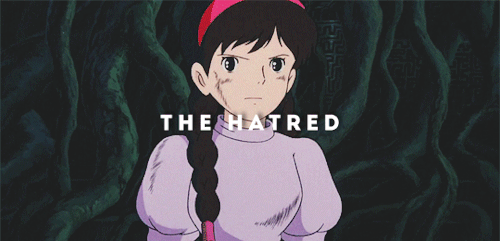
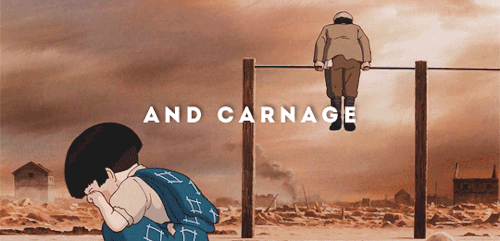
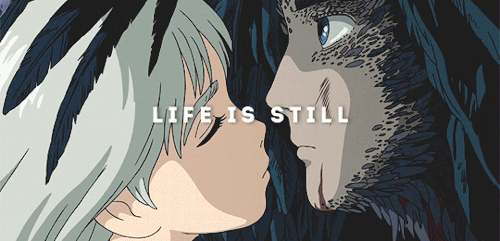
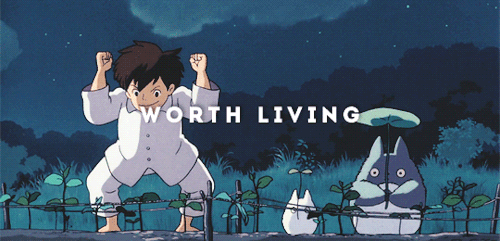
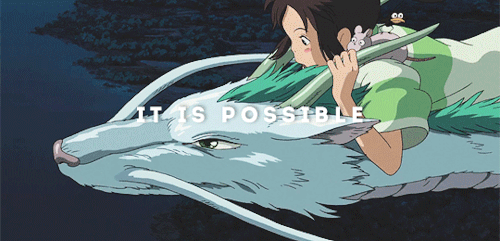
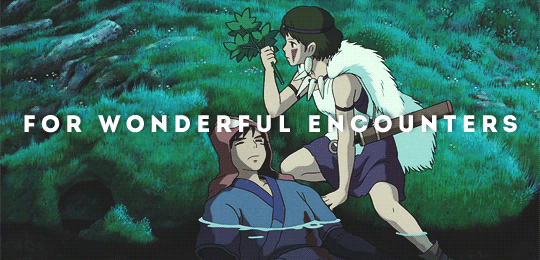
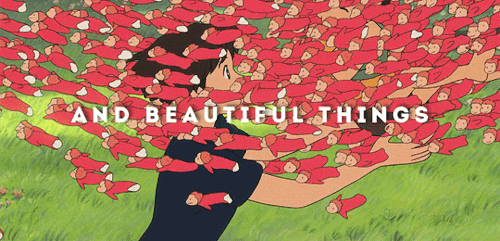
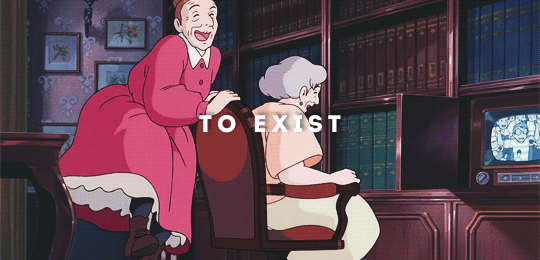
“even amidst the hatred and carnage, life is still worth living. it is possible for wonderful encounters and beautiful things to exist” ‒ hayao miyazaki
Nearly 130 public libraries closed across Britain in the last year

Almost 130 public libraries have closed in the last year in Britain while an extra 3,000 volunteers have been brought in to run remaining services, as the decade’s austerity pressures see local authorities continuing to apply swingeing cuts to budgets.
The annual survey of British libraries by the Chartered Institute of Public Finance and Accountancy (Cipfa) has revealed a similar picture each year since 2010, with the number of branches and paid staff falling every year.
READ MORE
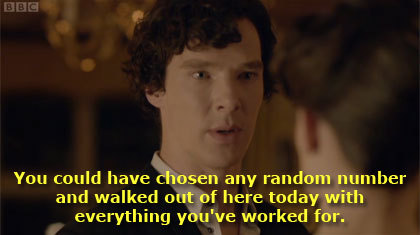


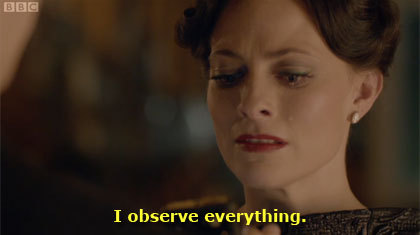


In which Irene does not develop feelings for Sherlock, but is instead a good role model for cancer prevention.


